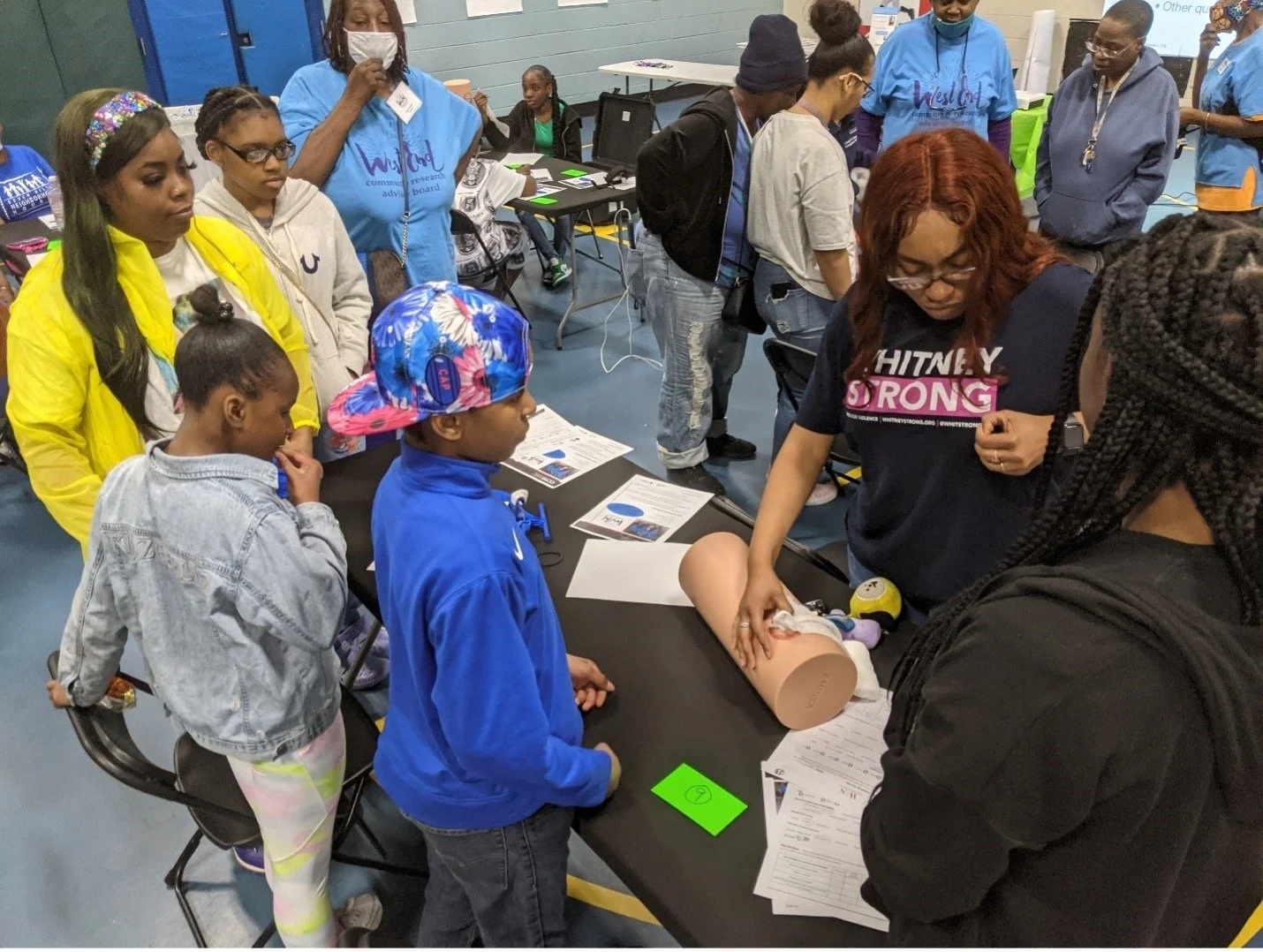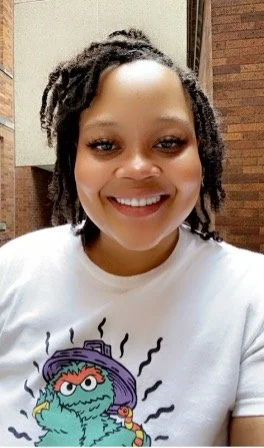WE C-RAB members share about research. (L-R: Bobby Rogers, Jackie Humphries & Luwana Pettus-Oglesby)
On Saturday, May 6th the West End Community Research Advisory Board (WE C-RAB) hosted a community Stop the Bleed and CPR/AED trainings. “We (the WE C-RAB) had identified the need for this kind of training for the community and were excited to be able to bring this opportunity to Seven Hills Neighborhood Houses community center through our research partners,” said President of the WE C-RAB, Luwana Pettus-Olgesby. The event, called “WE Care to Be Safe”, brought together partnering researchers who have come to the WE C-RAB for feedback, with the Whitney Strong Foundation to provide hands-on life-saving education to the community. Community members were invited directly by WE C-RAB members, as well as through the community center.
Danea Cloyd of the Whitney Strong Foundation demonstrates packing a wound
Pediatric Emergency Medicine Fellow, Cindy Chang, M.D., conducted the Stop the Bleed training with assistance from Michelle Eckerle, M.D. from pediatric emergency medicine and Danea Cloyd from the Whitney Strong Foundation (WSF). The WSF, which is focused on ending gun violence and loss of life, provided tourniquet kits for all participants who completed the training. Dr. Chang had previously come to the WE C-RAB seeking guidance and feedback on her research around conducting the Stop the Bleed with youth. Adam Powell, M.D., pediatric cardiologist, led the CPR and AED training with Drs. Chang and Eckerle assisting. Dr. Powell had come to the WE C-RAB seeking input on a research study involving male high school basketball players and heart health.
Cindy Chang, M.D. works with WE C-RAB member Vonnie Tawwab on how the tourniquet works
Nearly 50 people were trained, including WE C-RAB members, Seven Hills staff, Woodlawn Parks and Recreation staff and Hughes High School students, among the many community members attending. Each participant was given a Stop the Bleed certificate of completion, a tourniquet kit and a first aid kit, as well as information about participating in research, including tearpads for a sampling of studies. “I work in the ER, so nearly every encounter in that environment is stressful for the families. It was wonderful to be able to interact with the community in a more relaxed environment and give them health information they wanted and seemed to find valuable,” said Dr. Eckerle. Dr. Powell expressed how refreshing it was “to talk to a group so invested and eager in learning about these important skills because they want to support their community. It made for a joyful interaction for me.” The WE C-RAB plans to host 1-2 more community-researcher partnering events this year.
Adam Powell, M.D. presents AED training
About the RPAC and WE C-RAB. The RPAC and WE C-RAB are resources available to across the Academic Health Center interested in learning the research participant or community perspective and improving how research is conducted at the hospital or out in the community. If you are interested in seeking feedback from one of these groups at one of our meetings, or through electronic survey, contact Julie Wijesooriya or learn more here.















